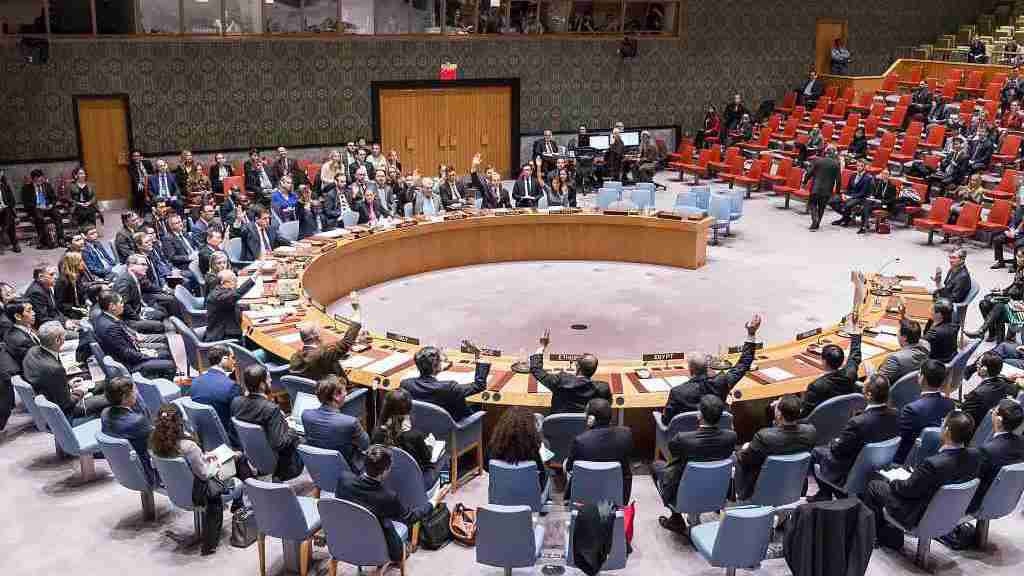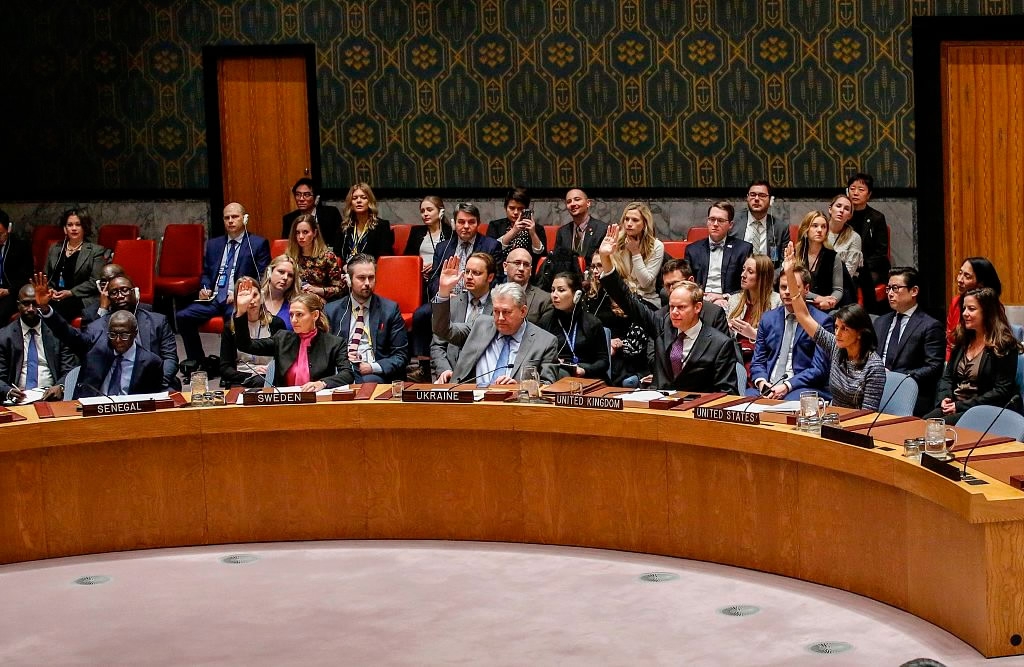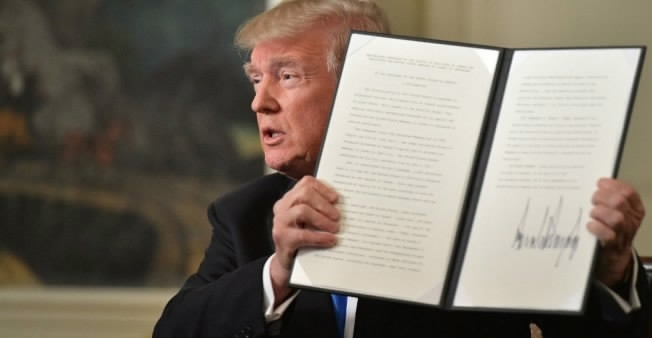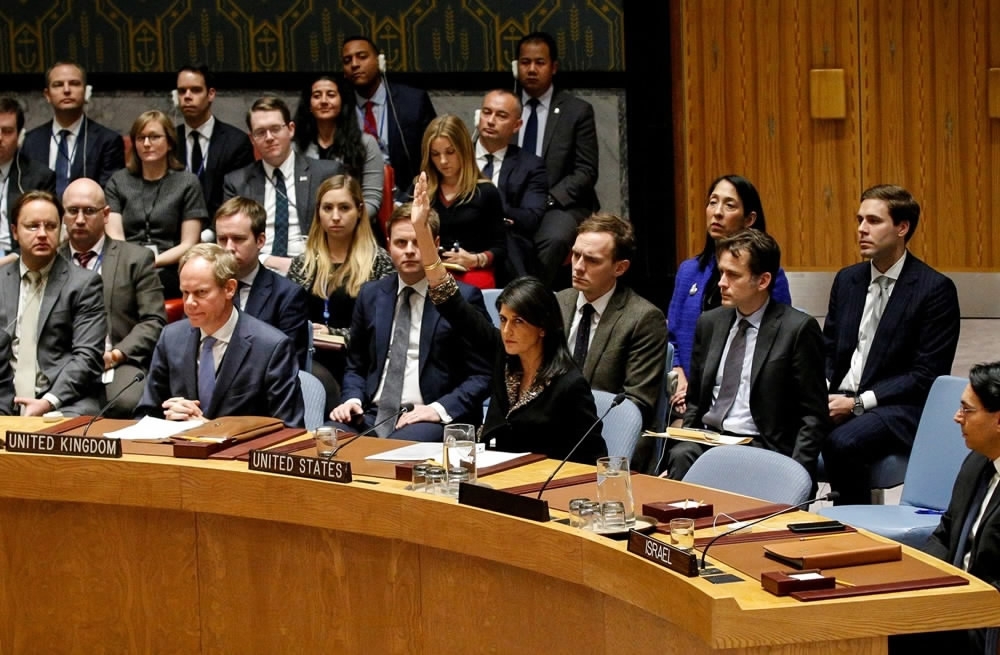
Opinions
16:30, 25-Dec-2017
Opinion: A tale of two UN resolutions
Guest commentary by John Gong

Last week in New York, two countries’ statement in reaction to two United Nations resolutions, respectively, stand strikingly similar in its tone, in its threat and in its nonsense to the world.
Interestingly, one is often portrayed by another as a “rogue nation” and “axis-of-evil.” In return, the other one’s vicious diatribes are not even worthy to translate into English.
However, within three days the invectives from both countries to the international community became a shouting match to demonstrate how low each can sink, morally and diplomatically.

Members of the UN Security Council vote 15-0 to impose new sanctions on N. Korea during a Security Council meeting over DPRK, December 22, 2017. /VCG Photo
Members of the UN Security Council vote 15-0 to impose new sanctions on N. Korea during a Security Council meeting over DPRK, December 22, 2017. /VCG Photo
I challenge readers to tell one from another. So here you go:
“Those countries that raised their hands in favor of this 'sanctions resolution' shall be held completely responsible for all the consequences to be caused by the 'resolution' and we will make sure forever and ever that they pay a heavy price for what they have done.”
“We will remember this day in which it was singled out for the attack in the General Assembly for the very act of exercising our right as a sovereign nation. We will remember it when we are called upon to once again make the world’s largest contribution to the United Nations. And we will remember it when so many countries come calling on us, as they so often do, to pay even more and to use our influence for their benefit.”
Well, the first one is, expectedly, from the Democratic People’s Republic of Korea (DPRK), and the second one is, surprisingly, from the United States.
The DPRK is as mad as hell after the UN Security Council unanimously passed Resolution 2397, which strangles the country’s imports of petroleum to 500,000 barrels a year and called for the repatriation of all its nationals working abroad within 12 months.
Now, there is a very good DPRK restaurant by the name of Datongjiang near my campus in Beijing that I often patronized. The food is excellent, and the waitresses are all exceptionally gorgeous, allegedly from Pyongyang’s best colleges of arts and music. At noon and dinner time, they even put on a show as part of the dining experience. I am concerned it will have to close soon after this UN resolution. But I am willing to shed all the DPRK’s meals in the future to support this UN resolution.

US President Donald Trump holds up a signed memorandum after he delivered a statement on Jerusalem from the Diplomatic Reception Room of the White House, December 6, 2017. /AFP Photo
US President Donald Trump holds up a signed memorandum after he delivered a statement on Jerusalem from the Diplomatic Reception Room of the White House, December 6, 2017. /AFP Photo
The DPRK’s behavior is not surprising after all. But what intrigues me this time is how the United States, as represented by its UN ambassador Nikki Haley, has sunk to the DPRK level in her speech after the resolution was voted.
The resolution, which garnered 128 votes for it, nine votes against it and 35 votes of abstention before it was killed by the US, is about condemning US president Donald Trump’s decision to recognize Jerusalem as Israel's official capital and to move its embassy over there. The nine against-votes constitute what is jokingly dubbed as the new coalition of the willing. Aside from Israel and America, the rest of these countries could be a pretty good test of high school geography. See if folks can find them on a map, and I bet most will fail: Guatemala, Honduras, Marshall Islands, Micronesia (FS), Nauru, Palau and Togo.

US Ambassador to the United Nations Nikki Haley vetoes an Egyptian-drafted resolution regarding recent decisions concerning the status of Jerusalem during a United Nations Security Council meeting at UN Headquarters in New York, US, December 18, 2017. /Reuters Photo
US Ambassador to the United Nations Nikki Haley vetoes an Egyptian-drafted resolution regarding recent decisions concerning the status of Jerusalem during a United Nations Security Council meeting at UN Headquarters in New York, US, December 18, 2017. /Reuters Photo
Haley’s message is similarly intimidating in tone as that from Pyongyang, other than it is more specific – in monetary terms. But alas, her statement essentially boils down to an embarrassingly inconvenient fact: what the United States lacks in morality, it attempts to make it up to the dollar sign!
Haley asked an interesting question. What about those countries that voted unanimously in the Security Council along with the US on the DPRK resolution but against the US on the Jerusalem resolution? Are they going to be remembered? For the record, aside from the five permanent Security Council members, those non-permanent member countries all voted with and against the US within three days apart except Ukraine which did not vote: Bolivia, Egypt, Ethiopia, Italy, Japan, Kazakhstan, Senegal, Sweden, and Uruguay.
(The author is a professor at the University of International Business and Economics of China. The article reflects the author’s opinion, and not necessarily the views of CGTN.)

SITEMAP
Copyright © 2018 CGTN. Beijing ICP prepared NO.16065310-3
Copyright © 2018 CGTN. Beijing ICP prepared NO.16065310-3